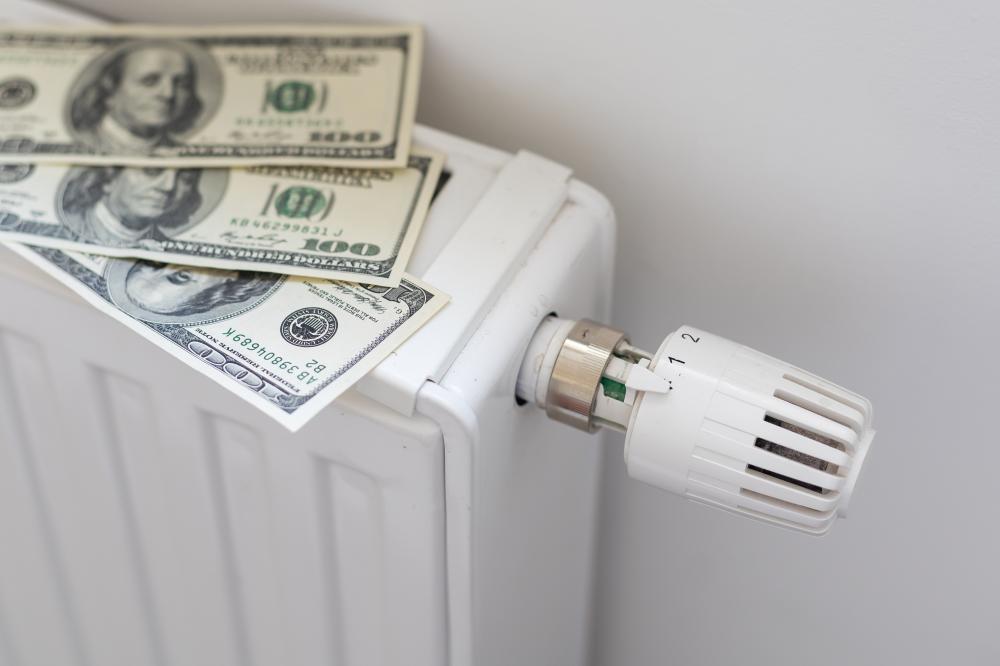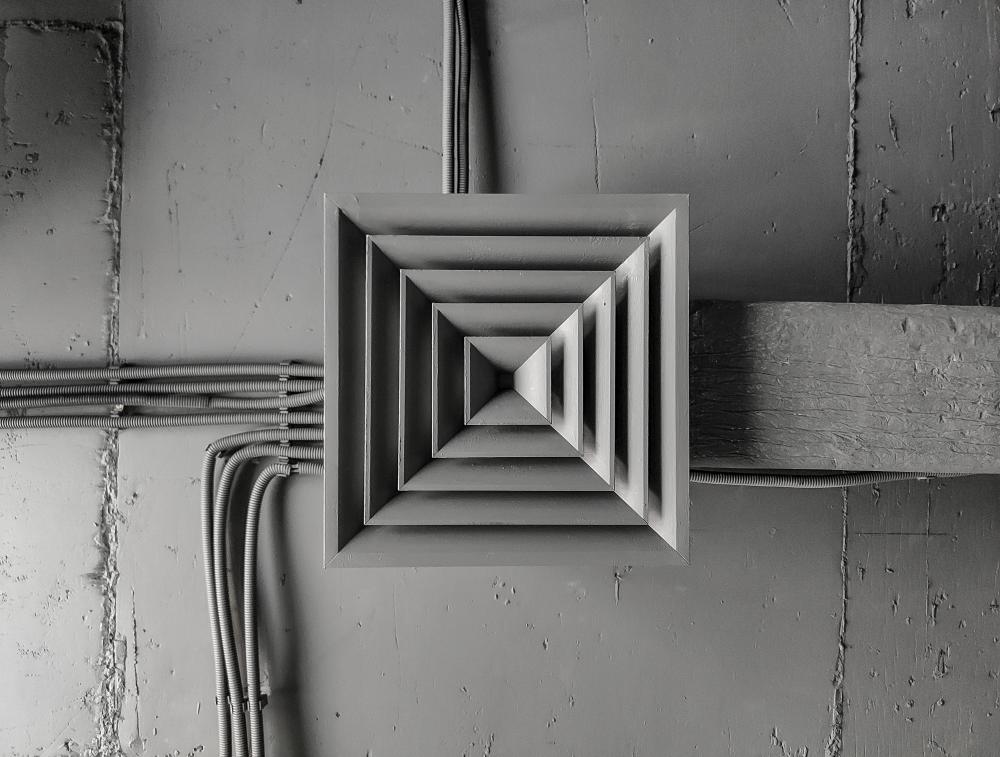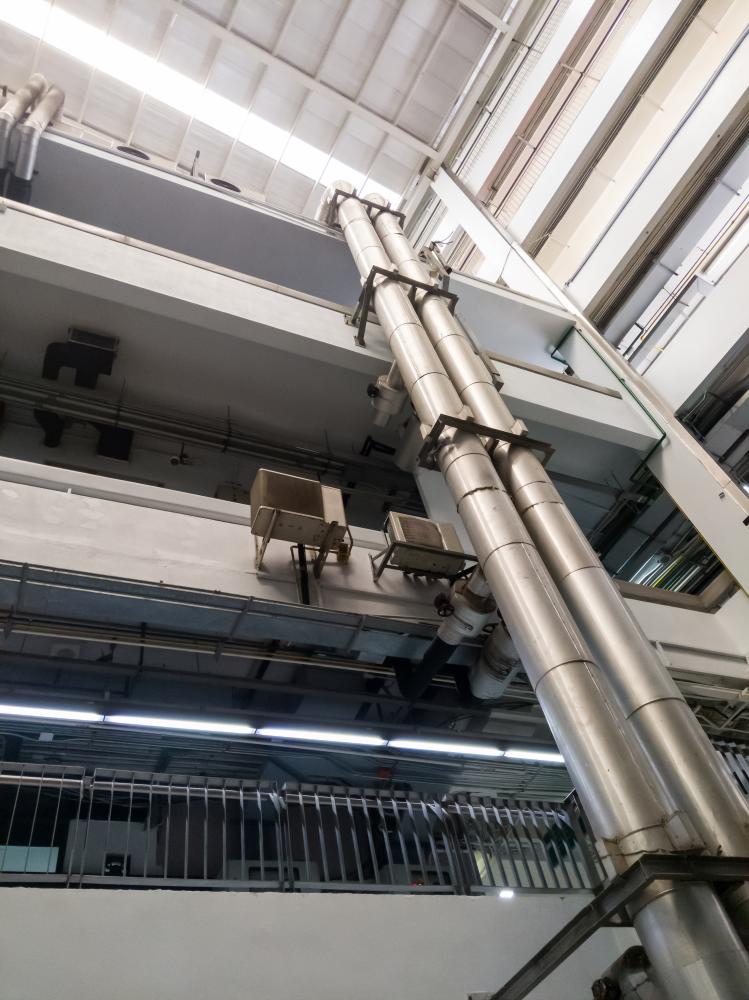Hvac Repair Cost

What Influences HVAC Repair Cost?
When you face a sudden breakdown, understanding the factors influencing HVAC repair cost is crucial. The type of system you have, whether it's a central air conditioner, heat pump, or a furnace, greatly affects pricing. Complex systems might require more sophisticated parts and repairs, impacting the overall cost significantly.
Location also plays a pivotal role in determining HVAC repair cost. Urban areas often have higher labor rates, which directly affects repair pricing. Additionally, parts availability can vary, leading to different costs for similar repairs in different regions. Weather, too, can dictate prices--heat waves or cold spells often increase demand for services, raising costs.
Age and condition of your equipment are other significant considerations. Older HVAC systems might not only need more frequent repairs but sourcing parts can be expensive and challenging. Newer models may still be under warranty, which can alleviate some costs; older systems generally require more extensive repair work.
Unexpected Emergency Costs
There's a world of difference between a routine repair and an emergency situation. At Home Alliance, we've seen firsthand how a midnight repair can be stressful and costly. Emergency callouts tend to incur higher labor charges due to their 24/7 nature. It's vital to be ready for these unexpected costs, especially if your system breaks down outside of regular business hours.
Another critical aspect is the complexity of the repair needed during these emergencies. If an issue is difficult to diagnose or fix, it may require specialized skills or parts, which can add to the HVAC repair cost. Our experience at Home Alliance has shown that while some emergencies can be quickly resolved, others may require a more involved approach, driving up costs.
Preventative measures can mitigate these emergency scenarios. Regular maintenance checks can preempt many issues and help avoid sudden system failures, saving you stress and money in the long run. Maintenance can extend equipment life, ensure efficiency, and catch problems before they escalate into emergencies.
Balancing Quality and Cost
Choosing between cost-effectiveness and quality service is a common dilemma. At Home Alliance, we emphasize the importance of selecting experienced professionals to ensure your repair is handled correctly from the start. Cutting corners by hiring less experienced technicians can lead to repeated issues, ultimately increasing the HVAC repair cost. It's vital to consider the reputation and reviews of the company or contractor servicing your HVAC needs.
Another way to keep costs in check without sacrificing quality is by seeking quotes from various service providers. This doesn't mean opting for the cheapest option but understanding what each service includes. At Home Alliance, we pride ourselves on transparency, offering detailed quotes to ensure there are no hidden surprises.
When weighing your options, inquire about any warranties they offer on their services or parts. A good warranty can provide peace of mind and extra value, protecting you from additional repair costs shortly after the initial service. Investing in quality now can prevent higher costs down the road, ensuring your HVAC system runs smoothly and efficiently.
An often-overlooked option is exploring maintenance plans. These can offer regular service checks and reduced rates for repairs, ultimately helping manage costs while ensuring your system remains in peak condition. Structured maintenance can provide a balance between keeping costs reasonable and ensuring quality service.

Understanding HVAC Furnace - Functions and Importance
The HVAC furnace is a vital component in any heating, ventilation, and air conditioning system, primarily responsible for warming indoor spaces. The furnace operates by utilizing a heat exchanger, which converts energy into heat that is distributed through the home's ductwork. As someone who has witnessed the significant differences in comfort levels that a functioning HVAC furnace provides, I can attest to its essential role in maintaining home comfort during the chilly months.
Home Alliance's expert technicians have noted that one of the most overlooked aspects of an HVAC furnace is its ability to impact air quality. A well-maintained system does more than keep the temperature in check; it also ensures that the air circulating indoors is clean. This multifaceted functionality underscores why regular maintenance and timely interventions are necessary to keep the furnace in prime condition.
Common HVAC Furnace Issues and Practical Resolutions
From my firsthand experience at Home Alliance, one of the recurring problems with HVAC furnaces is uneven heating, which often leads to uncomfortable cold spots within the home. This issue usually stems from clogged air filters or ductwork obstructions. Our seasoned professionals recommend routine inspections and timely filter replacements to optimize airflow and ensure uniform heating.
Another common hiccup is the furnace failing to turn on, which may indicate a malfunctioning thermostat or disrupted power supply. Our team frequently encounters cases where a simple thermostat recalibration resolves the issue, yet there are instances where more complex wiring problems demand expert troubleshooting. Hence, a trained eye can quickly identify and remedy the problem, ensuring minimal downtime.
At Home Alliance, we have also realized that strange noises emanating from the HVAC furnace, such as banging or rattling, can signal more severe mechanical issues. Addressing these sounds early can prevent costly repairs down the line. Promptly contacting professionals for a diagnostic check is crucial for maintaining the system's longevity.
Maintaining and Optimizing HVAC Furnace Performance
Regular maintenance is the cornerstone of efficient HVAC furnace operation. Drawing from years of experience, I can share that scheduled check-ups significantly enhance the system's performance and reliability. Our team at Home Alliance emphasizes cleaning the furnace components regularly, including burners, to prevent build-up that can impair functionality.
Moreover, optimizing the thermostat settings can contribute to energy savings without sacrificing comfort. By setting the thermostat to lower temperatures when the house is unoccupied, homeowners can reduce energy consumption substantially. As a trusted advisor in HVAC solutions, I've seen how simple adjustments can lead to noticeable cost savings.
Leveraging smart technology with programmable thermostats, a service we offer at Home Alliance, further refines furnace efficiency. These devices empower homeowners to customize climate control, aligning with daily routines and preferences. In today's tech-savvy era, integrating smart solutions offers remarkable convenience and energy efficiency.
Lastly, partnering with a reliable service provider like Home Alliance ensures that any issues are addressed proactively. Our commitment to delivering top-notch HVAC services guarantees that your HVAC furnace remains a robust and reliable part of your home environment, maintaining both comfort and air quality effortlessly.
The Importance of Regular Commercial HVAC Maintenance
At Home Alliance, we emphasize that regular commercial HVAC maintenance is not just about preventing breakdowns, but about ensuring seamless operations, comfort, and energy efficiency. As someone who has worked in the HVAC industry for years, I have seen firsthand the difference consistent maintenance makes. For businesses, the heating and cooling system is a crucial component that affects both employee productivity and customer satisfaction. Proper maintenance not only keeps systems running smoothly but also extends their lifespan significantly.
Skipping out on routine maintenance checks can lead to unexpected costs, higher energy bills, and even complete system failures at the worst times. I've seen businesses faced with emergency repairs that could have been avoided with a proactive approach. It's all about foresight- addressing minor issues before they escalate not only saves money in the long term but also curtails downtime, a vital consideration for any business.
There's a comforting predictability in routine. In my experience, scheduled commercial HVAC maintenance means fewer surprises, allowing business owners to focus on what truly matters: running their business. Regular maintenance keeps the air clean and the temperatures consistent, creating a more pleasant work environment for everyone involved.
Key Elements of Maintaining Commercial HVAC Systems
When we talk about commercial HVAC maintenance at Home Alliance, we're not just referring to a cursory glance at your systems. It's about a comprehensive strategy encompassing various elements. From my experience, regular filter changes are crucial because clogged filters can significantly reduce system efficiency and compromise air quality. The little things matter - it's those routine checks and changes that create a stable and efficient foundation.
Another crucial aspect is inspecting ductwork for leaks or obstructions. Leaky ducts can lead to significant energy loss and uneven temperature distribution throughout a building. During my time with Home Alliance, I've witnessed older buildings with ductwork that desperately needed attention, often resulting in improved efficiency after repairs.
System calibration is also a vital, yet often overlooked, component of commercial HVAC maintenance. Ensuring thermostats are functioning correctly and that systems operate at their optimal levels can yield significant energy savings and comfort improvements. It's fascinating how such seemingly minor adjustments can lead to palpable differences in performance.
Lastly, regular inspections of electrical connections and components help prevent fires and improve safety. This step is particularly critical in commercial settings, where the stakes are higher. At Home Alliance, we believe in a thorough approach that leaves no stone unturned, ensuring peace of mind and the smooth operation of business environments.
Common Misconceptions and Tips for Better Maintenance
One widespread misconception about commercial HVAC maintenance is that it's an unnecessary expense. In reality, it's an investment that pays off in the long run. From my position at Home Alliance, I've consistently advocated for the long-term savings that come from regular upkeep. Maintenance is not just about fixing what's broken but preventing issues before they arise.
Another common myth is that modern systems don't require as much attention. Quite the contrary, even the most advanced HVAC systems need regular check-ups to function at peak efficiency. I've seen top-of-the-line units falter due to neglect, underscoring the importance of attention to detail.
A practical tip I've gleaned from my time working in the field is to make HVAC maintenance part of your annual budgeting process. Allocate funds specifically for this purpose and consider it a priority instead of an afterthought. The compilation of minor expenditures for regular maintenance is typically far less than the costs associated with emergency repairs or replacements.

How much does an average HVAC repair cost?
At Home Alliance, we understand that cost is often a major concern when it comes to HVAC repairs. On average, you can expect to pay anywhere from $150 to $450 for most common HVAC repairs. Of course, the cost can vary depending on the complexity of the issue and the specific parts required. For instance, a simple fix like replacing a thermostat might be on the lower end, while more complex issues with a compressor could exceed that average range. It's always a good idea to have a professional assess the situation to provide an accurate quote. If you're ever in doubt, feel free to reach out to us for a comprehensive evaluation and estimate.
What is the $5000 rule for HVAC?
The $5000 rule is a handy guideline for deciding whether to repair or replace your HVAC system. It suggests that you multiply the age of your HVAC equipment by the cost of repair. If the result is more than $5000, it's often more cost-effective to replace the system rather than repairing it. For example, if your system is 10 years old and a repair is estimated at $600, you'd multiply 10 by 600, giving you $6000. In this scenario, you might want to consider replacement. At Home Alliance, we help homeowners evaluate their options based on this rule to make informed decisions that fit both their budget and comfort needs.
What is the typical cost to replace HVAC system?
Replacing an HVAC system is a significant investment, and the total cost can depend on various factors such as the size of your home, the type of system, and its efficiency. Typically, you might expect to pay between $3,000 and $7,000 for a central air conditioning system replacement, with costs potentially rising if you opt for high-efficiency models or need additional ductwork. From my experience at Home Alliance, investing in a new system can save you money in the long run through improved energy efficiency and fewer repair needs. We always encourage homeowners to consider their options and to consult with us to explore the best solution for their situation.
Does homeowners insurance cover HVAC?
Homeowners insurance usually does not cover HVAC repairs due to normal wear and tear, as it's typically considered part of regular home maintenance. However, if your system is damaged by an event covered in your policy, such as a fire or a storm, it might be eligible for coverage. For peace of mind, I always recommend reviewing your specific insurance policy or speaking with your insurance agent to understand what is and isn't covered. At Home Alliance, we can also provide guidance on maintenance practices that can help prolong the lifespan of your HVAC system, potentially reducing unexpected repair costs.
How do emergency HVAC repair costs differ from regular repair expenses?
Emergency HVAC repairs are often more expensive than regular repairs because they occur outside of normal working hours and sometimes require immediate resolution. At Home Alliance, we've found that emergency services can add a premium to labor costs, often due to the need for technicians to be available 24/7. This urgency can lead to expedited service rates, especially if specialized skills or parts are needed. One way to manage these costs is by ensuring regular maintenance, which can prevent many emergencies from arising in the first place. Consider developing a maintenance plan with us to mitigate these unexpected expenses.
What factors influence the cost of HVAC furnace repairs?
From our experience at Home Alliance, several factors can influence HVAC furnace repair costs, including the type and age of the furnace, the specific problem, and the availability of parts. For example, older furnaces might require parts that are harder to find, which can drive up costs. Location also plays a role, as urban areas may have higher labor rates. It's also worth noting that some brands or models might have proprietary parts that are more expensive. We recommend having a professional evaluation to pinpoint the exact issue and discuss repair versus replacement, considering both short-term and long-term costs.
Why is regular maintenance important for commercial HVAC systems?
Regular maintenance of commercial HVAC systems is crucial for several reasons. From my years at Home Alliance, I've seen how consistent upkeep can prevent unexpected breakdowns, reduce energy consumption, and extend the lifespan of the system. For businesses, a malfunctioning HVAC system can significantly impact employee productivity and customer comfort, ultimately affecting your bottom line. Routine maintenance checks allow us to identify and correct minor issues before they become major problems, saving money and avoiding downtime. We advise business owners to view maintenance as a long-term investment in operational efficiency.
What are common misconceptions about HVAC maintenance?
One common misconception is that newer HVAC systems don't require as much maintenance. In reality, regardless of age, all systems benefit from regular check-ups to ensure they operate efficiently. Another myth is that skipping maintenance saves money, but from our experience, neglect often leads to more costly repairs or replacements in the long run. At Home Alliance, we advocate for regular service to not only enhance performance but also to ensure that your system is operating safely. Considering the implications of neglect, it's wise to budget for regular maintenance as a preventive measure.
How can I balance quality and cost when repairing an HVAC system?
Balancing quality and cost is a common challenge, but it's crucial for ensuring your HVAC system remains reliable. At Home Alliance, we emphasize the importance of choosing experienced and reputable service providers. Obtaining multiple quotes can help you understand the market rates; however, it's essential to look beyond the price and consider the service scope, warranties, and reviews. Investing in quality service upfront can save money over time by avoiding repeated issues. Also, consider maintenance plans that offer regular inspections at reduced rates, providing both financial and service quality benefits over the long haul.
What role does an HVAC furnace play in maintaining air quality?
An HVAC furnace plays a vital role in not just heating your home but also in maintaining air quality. At Home Alliance, we've seen firsthand that a well-maintained furnace filters and circulates clean air, which is crucial for indoor health. Dirty or clogged filters, however, can degrade air quality, causing health issues for occupants and reducing system efficiency. Regular service, including filter changes and system cleaning, is key to ensuring both comfort and reliability. If improving air quality is a concern in your home, we're here to provide the best solutions customized for your needs.
Resources
- U.S. Department of Energy - Official website of the U.S. Department of Energy providing information on energy efficiency and HVAC systems.
- U.S. Environmental Protection Agency - The official website of the U.S. EPA offering resources on air quality and HVAC system maintenance.
- ASHRAE - The American Society of Heating, Refrigerating and Air-Conditioning Engineers provides resources on HVAC design and efficiency.
- ENERGY STAR - The ENERGY STAR program by the U.S. EPA and Department of Energy offers resources on energy-efficient HVAC systems.
- CDC/NIOSH - The National Institute for Occupational Safety and Health offers resources on indoor air quality and HVAC system safety.

